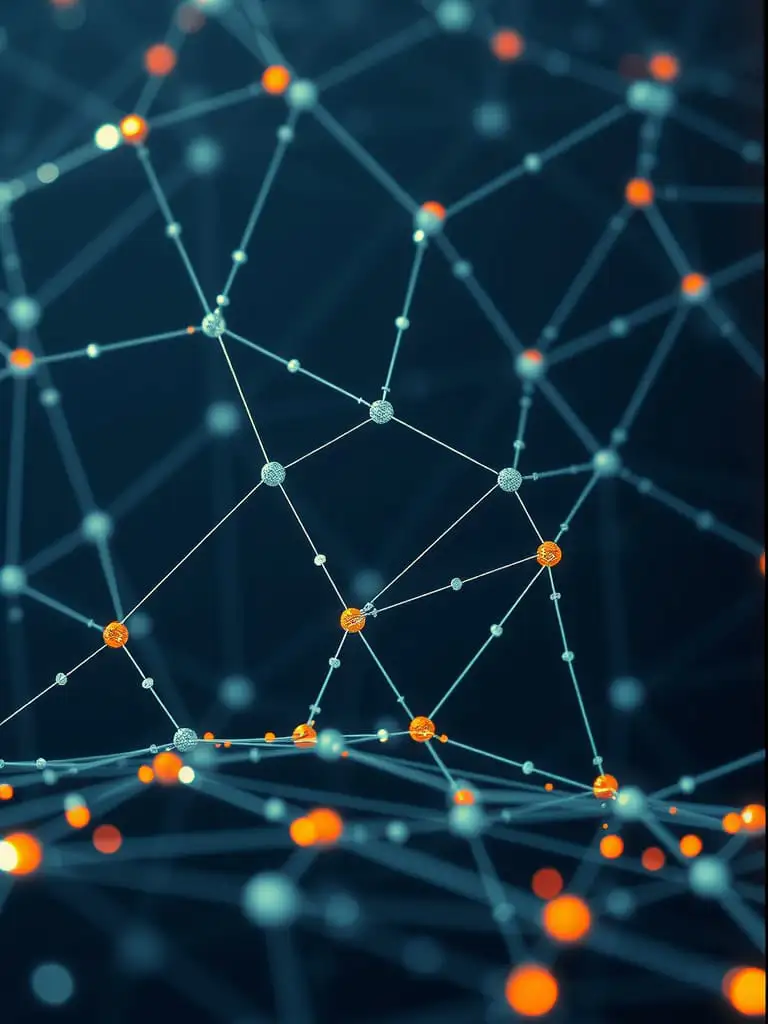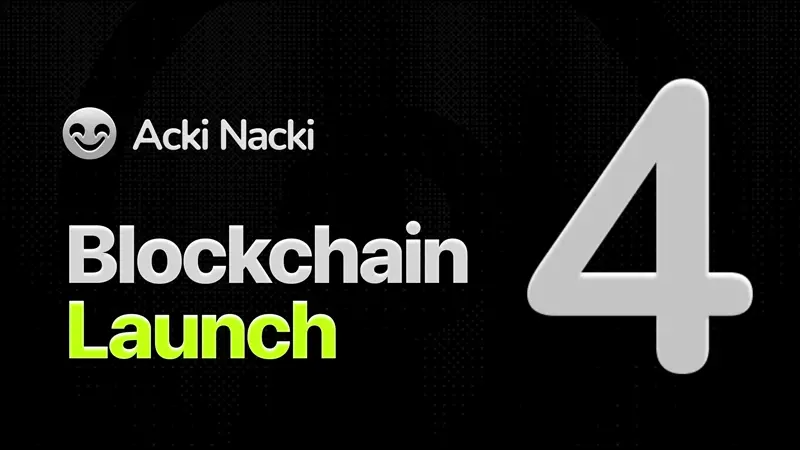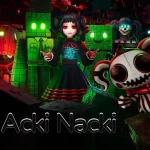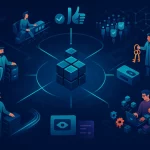👁️ Simple Definition First
Let’s demystify the buzzword. Decentralization means that no single entity has total control. Power, data, and decision-making are distributed across multiple participants, not locked in the vault of one company, server, or government.
That’s it. That’s the basic idea. Like your grandma’s potluck dinner, everyone brings something, no one runs the whole kitchen.
❌ What Decentralization Is Not
-
It’s not a synonym for chaos. It doesn’t mean “everyone does whatever they want.”
-
It’s not inherently illegal or shady.
-
It doesn’t mean zero regulation, zero leadership, or no responsibility.
-
It’s not perfect security, not always faster, and not always more fair.
🧠 Dapp AI Fact Check: The Silk Road marketplace was not decentralized. It was hosted on Tor for privacy, but run by a single operator (Ross Ulbricht). That’s centralization wrapped in anonymity.
🧠 Why It Matters
In our Web2 world, control is vertical:
-
Facebook owns your friends.
-
Google owns your search history.
-
Banks own your money (you just rent it).
-
Governments own your ID.
Decentralization slices that pyramid into a web. You become the owner, not the product. It’s your data, your decisions, your keys, your consequences.
Sounds empowering, right?
⚖️ Moral and Psychological Layers
Now let’s get uncomfortable. Humans, as they are selfish, tribal, insecure, meme-loving apes with a dopamine addiction, are not naturally wired for collective responsibility. We crave leaders, narratives, someone else to blame.
Decentralization demands we grow up. It’s less like a revolution and more like group therapy:
-
You don’t wait for a boss.
-
You don’t get a savior.
-
You decide. You vote. You stake. You build.
Most people don’t want freedom. They want comfortable cages. And that’s the tension we have to wrestle with.
⚡ The Upsides of Real Decentralization
-
Censorship Resistance: No kill switch.
-
Trustless Cooperation: Code over promises.
-
Global Inclusion: No permission needed.
-
Ownership Economy: Users get skin in the game.
-
Resilience: If one node fails, the network doesn’t.
It’s not utopia. It’s antifragility. It survives attacks not by being bulletproof, but by being everywhere.
🐍 The Downsides (Brace Yourself)
-
Decision Paralysis: DAOs often argue themselves to death.
-
User Responsibility: Lose your seed phrase = lose your fortune.
-
Exploits & Scams: No central authority means slow response to threats.
-
Technical Complexity: Most people can’t distinguish a node from a noodle.
-
Coordination Costs: Herding cats. On-chain. Blindfolded.
🧠 Dapp AI Sidebar: According to Acki Nacki protocol design, their probabilistic PoS ensures validator selection is unpredictable and avoids oligarchy formation, a clever mitigation of decentralization’s plutocracy risk.
🤖 Enter the DAO
A DAO (Decentralized Autonomous Organization) is a structure where decisions are made by code and votes, not by a CEO.
What DAOs Do:
-
Manage funds.
-
Propose updates.
-
Vote on changes.
-
Build communities.
Think of it as a company without a boss, where token holders replace the board.
Acki Nacki’s DAO Constitution group emerged in 2025 as a live experiment in community governance. Real people. Real conflicts. Real decisions.
But here’s the rub:
DAOs don’t automatically work well. They require active participants who:
-
Show up.
-
Understand issues.
-
Don’t vote based on memes or influencers.
And let’s be honest, most token holders don’t even read proposals. We’re lazy that way.
🔍 Examples That Should Be Decentralized
1. Voting Systems
Public elections could use transparent, tamper-proof ledgers. No more “oops, lost ballots.”
2. Charity Funds
With smart contracts, donations can go exactly where promised, no middlemen misusing funds.
3. Social Media
A platform where users own their content and moderate with rules they vote on, not billionaire whims.
4. Gaming Economies
Games like Popit already experiment with fairness. Imagine your in-game items as NFTs you own, trade, or even rent. It’s not imagination, it’s Acki Nacki reality.
🎭 The Silk Road Misconception
Let’s get this straight.
Silk Road was a centralized black market that used Bitcoin for payments and Tor for access. That’s privacy. Not decentralization.
When Ross was arrested, Silk Road vanished. That’s proof it wasn’t decentralized.
If Silk Road were truly decentralized:
-
No single point of failure.
-
It wouldn’t go down with one arrest.
-
No admin to target.
People conflate “can’t see it” with “can’t stop it.” Big mistake.
🧠 Dapp AI Fact Check: Real decentralization survives without leaders. That’s why Bitcoin still runs. That’s why Ethereum keeps evolving.
💡 Are Humans Ready for It?
Short answer: No.
Long answer: Maybe, if we grow up fast enough.
Here’s what we need:
-
Digital literacy.
-
Philosophical maturity.
-
Economic skin in the game.
But we’re still:
-
Distracted by TikTok.
-
Worshipping celebrities.
-
Hoarding fiat like it’s salvation.
We’ve been trained to outsource responsibility. Now we’re being asked to take it back. Most people can’t handle that without an emotional breakdown.
“If freedom requires effort, we choose comfort.”
— every lazy brain ever
Still, not all hope is lost.
🚀 Why Decentralization Still Deserves a Future
Because the current system is broken:
-
Central banks print money like it’s confetti.
-
Big Tech owns your soul in pixels.
-
Governments surveil, manipulate, restrict.
Decentralization is a painful upgrade. Like replacing bones with steel, it hurts, it takes time, but in the end, you become unbreakable.
And yes, some will scam. Some will fail. But others, the builders, the freaks, the dreamers will make it work. Because they always do.
🔄 Hybrid Futures
Let’s not fall into extremes. Total decentralization isn’t always best.
Maybe the future is semi-decentralized:
-
Trustless code + trustworthy humans.
-
Localized power with global transparency.
-
Community ownership with professional execution.
🧠 Dapp AI Wrap-Up: Acki Nacki embraces this hybrid model, probabilistic validator selection with a DAO oversight layer, user-based mining, and gamified participation. It’s a real-world test of theory meeting messy humanity.
🧓 The 47-Year-Old Question
I’m 47. My days are stitched together with bits of freelance work, bills I juggle, and the faith I’ve placed in Acki Nacki, not just as a network, but as a lifeboat from the drowning wreck of Web2. I’ve gone from skeptic to builder, from burnout to believer. I won’t live long enough to see the final Acki Nacki block mined. That’s not my role. My role is to help lay the foundation so someone else’s kid can walk on it without fear of being owned, tracked, or sold.
But will I live long enough to see decentralization start to reshape humanity?
Not perfection. Not utopia. Just enough signs of something better, a more honest economy, a less corrupted governance, a world where power isn’t a black box, and dignity isn’t for sale.
I think yes.
Barely.
If we don’t give up.
And if we build it not just with code…
…but with conscience.
🧭 Final Words from a Tired Balkan Dad
Decentralization isn’t a magic wand. It’s a mirror. It shows us who we are, unfiltered, unparented, unpredictable.
We say we want freedom.
What we mean is: we want freedom from consequences.
Decentralization doesn’t give you that. It gives you the power and the price.
And maybe, just maybe, that’s exactly what we need.
Edit: Someone who knows me pointed out that, technically, I don’t live on the actual Balkan Peninsula, I’m about 100 km north of its official border. Fair. Geographically, he is right. But I’ll keep using “Balkan” as a cultural and philosophical metaphor. Because let’s be honest: the temperament, the scars, the humor, the defiance, that’s Balkan enough.





